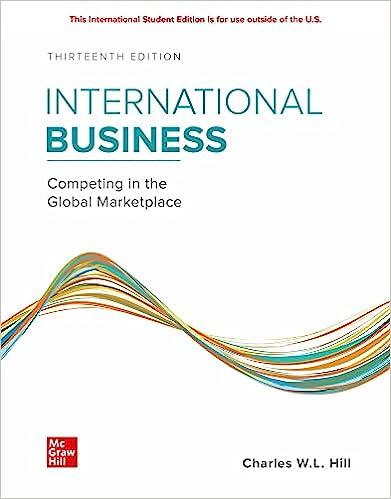When President Abdel Fatah al-Sissi came to power in a 2013 military coup, he promised to fix
Question:
When President Abdel Fatah al-Sissi came to power in a 2013 military coup, he promised to fix Egypt’s mounting economic problems. Three years later, those problems had only intensified. The country was struggling with low economic growth; 13 percent unemployment; a 12 percent inflation rate; a large trade deficit, amounting to 7 percent of GDP; a persistent budget deficit of around 12 percent of GDP; and public debt, which by 2016 stood at 92 percent of GDP. The tourism trade, a major source of foreign currency, had collapsed in the wake of concerns about terrorism, which included an Islamic State–linked insurgency in the Sinai Peninsula that claimed the bombing of a Russian passenger jet in 2016. Foreign direct investment, another source of foreign currency, had also slumped in the wake of Egypt’s economic and political problems.
One major issue was a lack of foreign currency in the country, which made it difficult to pay for imports and resulted in shortages of key commodities. For example, Egypt imports one-third of its sugar. By mid-2016, this commodity was in short supply due to the inability of Egyptian traders to get the foreign currency required to pay for imported sugar. Historically, in times of trouble, the oil-rich Arab states of the Persian Gulf had loaned foreign currency to Egypt at low interest rates, but a collapse in oil prices had left those states financially strained, and loans were not forthcoming. In an indication of the depth of Egypt’s problems, while the official exchange rate of the Egyptian pound was pegged at 9 pounds to the U.S. dollar, the black market rate had soared to 18 pounds to the dollar.
In mid-2016, with its foreign exchange reserves being rapidly depleted, the Egyptian government applied to the IMF for a loan. The IMF agreed to loan Egypt up to $12 billion, but only if the government undertook a number of economic reforms. These included liberalizing the exchange rate, letting the Egyptian pound float against other currencies. The thinking was that the pound would immediately depreciate against major currencies such as the U.S.
dollar and the euro, making Egyptian exports cheaper and its imports more expensive. This should help the country to improve its trade deficit and earn more foreign currency. At the same time, the IMF required the Egyptian government to implement an austerity program that included an immediate end to energy subsidies, which had kept energy prices artificially low; reforms to public enterprises to make them more efficient; a tighter monetary policy to rein in inflation;
and the imposition of a value-added tax to raise government revenues.
In November 2016, Egypt let the pound float freely. It immediately lost 50 percent of its value against the U.S. dollar, trading at around 13 pounds to the dollar. The depreciation continued into the new year, with the pound falling to 19 pounds to the dollar by mid-January 2017, bringing the official exchange rate and the black-market rate into equality.
Egypt also moved rapidly to impose the value-added tax. In return, the IMF released the first $2.75 billion of its loan to Egypt. Further tranches of the loan will be released as Egypt makes progress on the economic reforms advocated by the IMF.
Only time will tell if these policies will work. In addition to a fall in the value of the pound, the immediate impact included a surge in the annual inflation rate to around 20 percent. The IMF envisages the inflation rate falling to 7 percent within three years, while there should be sharp improvements in both the trade deficit and the budget deficit.
However, the planned austerity measures carry significant political risks for the Egyptian government. If protests materialize over short-term hardships, the government might cave in to political pressure and pull back from the IMFmandated reforms. If that happens, the IMF might withhold further installments under the loan program, and the Egyptian economy could continue to deteriorate.
Questions
1. What was the root cause of Egypt’s economic problems?
2. Was it appropriate for Egypt to bring in the IMF? What other alternatives did they have?
3. Do you think the policy measures required by the IMF are appropriate? What are these policy measures designed
to do? What might be the unintended consequences of these measures?
4. As a potential foreign investor, at what point would you be willing to invest in the Egyptian economy? To what extent would policies imposed by the IMF influence your decision?
Step by Step Answer:

ISE International Business Competing In The Global Marketplace
ISBN: 9781260575866
13th International Edition
Authors: Charles Hill





